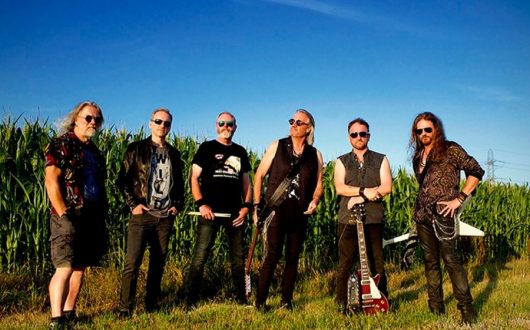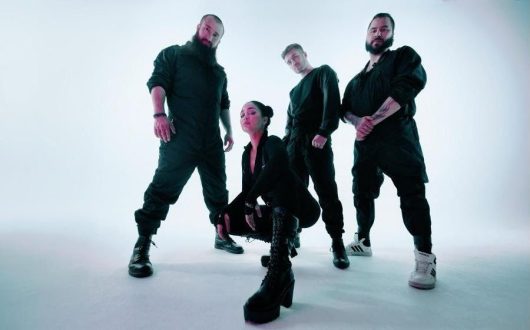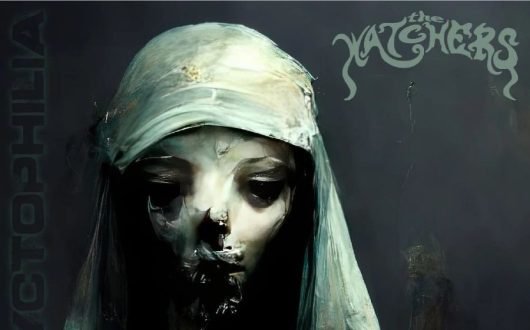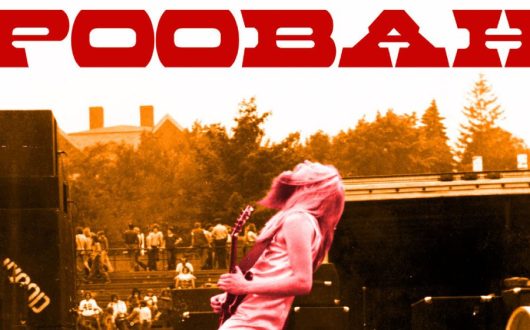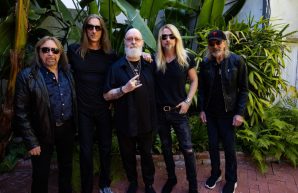Interview and Photos : Robert Cavuoto
Not many bands can leave a lasting impression, and legacy like Judas Priest have done over the last 40 years. They have been flying the flag for heavy metal through-out their career to legions of fans around the world while selling upwards of 50 million records internationally.
In 2010 Judas Priest shocked the world when they announced a Farewell Tour. Then in 2011, founding member and guitarist, K.K. Downing, announced he would be leaving the band. Things were not looking good in the Priest camp when the Farewell announcement was rescinded, and the band decided to carry on without K.K.
On September 18, 2018, via Da Capo Press, K.K. will be releasing a tell-all book called, Heavy Duty: Days and Nights in Judas Priest, where he chronicles the band’s rise to fame all the way to the circumstances surrounding his departure.
Heavy Duty: Days and Nights in Judas Priest is a must read for Judas Priest fans as it is written from a place of honesty and passion; done with integrity and respect to his ex-band mates.
In my candid interview with K.K. Downing, he shares why it was so difficult to explain his departure, the adversity the band had to overcome in its infancy, and why he sold off the rights to many of his Judas Priest songs.
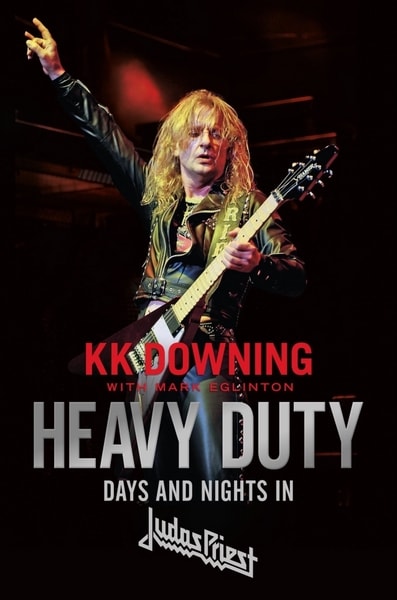
Robert Cavuoto: I interviewed you after you left Judas Priest and you didn’t share the details of your departure from the band with me or in any other interview. After reading your book, I realized that it was not something that you can fully explain in a 15-20 interview. Was it cathartic to finally share the real reasons why you left Priest?
K.K. Downing: Exactly that! There was no quick way to say things or to make a quick statement. As much as I was trying “not to say anything” inevitably, things started to happen. I was trying to keep everything as discreet as possible. It was my viewpoint, and when I said things, people didn’t necessarily get the chance to express their viewpoints. It’s a relationship, and there are always two sides to it. One person’s way of doing something is not another person’s way of doing it. It doesn’t always marry up, and you don’t always agree. It’s the way of the world.
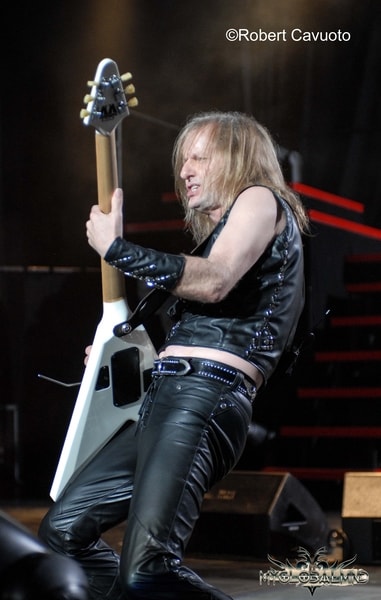
Robert Cavuoto: When you decided to write this book were you concerned on how transparent you were going to be with stories regarding the other members of Priest?
K.K. Downing: I guess so. I was wary of it. I just wanted people to know. I read a lot of things and what was painful was so many people have so many different opinions. I just wanted to pick up the phone and say, “Why do you think that?” I have read where fans said they were disappointed that I wasn’t asked to rejoin the band or why didn’t I ask to rejoin the band? [Writer’s note: referring to Glenn Tipton’s decision to not steadily tour with the band due to his diagnosis of Parkinson’s disease]. I didn’t have the opportunity because the replacement was made before anyone knew! Even before I knew, so there wasn’t an opportunity. There was never an opening or void to fill because the void was filled before I even knew about it. It has been a bit frustrating, and in the book, I tried to explain how it happened over a long period of time. When you’re young, gung-ho, and have aspirations, you tend to let more things go, but as you get older, you become a bit of an old fusspot [laughing]. You are not able to deal with things so much. They get to you a bit more. Not to say they are right or wrong it’s just how you feel. I tried to express it as best I could in the book. We were doing exceptionally well as a band when Rob Halford left for ~14 years. Even after I wrote the book, things still come back to me, so it’s hard to cast my memory back to include everything. Rob and Glenn did quite a lot solo projects, and I never did that. In the year prior to me leaving, Rob released two studio albums and did a tour. It’s things like these that accumulate and broke the camels’ back. I was just listening to an in-depth interview with Steve Perry from Journey who left the band when things were going well. Basically, the same thing happened to us.
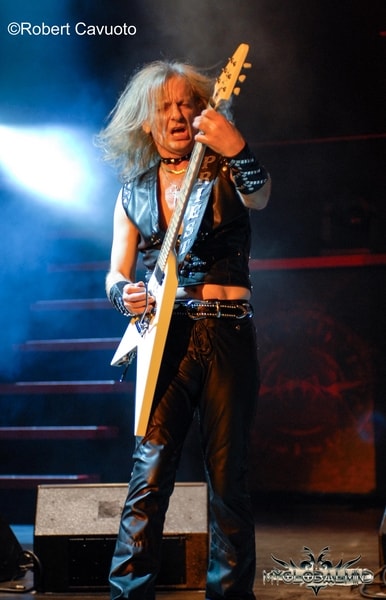
Robert Cavuoto: In the book, you talk about ownership of the name, Judas Priest, and how it transferred from Al Atkins [original singer in Judas Priest] to you. Are you the sole owner of the band’s name?
K.K. Downing: What happened was Al and I were together in the 60’s before any reasonable or notable recognition. I continued and built the name over our lifetime of the band. The name is in equal share with Rob Halford, Ian Hill, Glenn Tipton, and me in the company of Judas Priest Music Limited. That’s where it lies and obviously no longer being in the band, the guys are allowed to continue with it.
Robert Cavuoto: What does it feel like to have developed the leather and studs look that legions of metal fans have worn for years and still wear to this day?
K.K. Downing: It’s something I’m quite proud of. I tried to point out in the book that I was a troubled musical soul. Even though things were going pretty well with the band, there were still a few missing links. It took me a long time to get to that point where Judas Priest was recognizable by their sound and look. It hadn’t come to fruition in the early days and was a work in progress. As you look at those old photos from the 70’s we were playing Japan and America and our look didn’t come until after a good amount of time. I like to think that a lot of younger bands who read the book would take something from that. I would tell them always to keep aspiring to get to that point. They may not be there yet, but it can still be right around the corner.
Robert Cavuoto: Two LP’s in with Judas Priest you are facing adversity with no success and traveling in a van. Tell me about the desire and determination you had to champion on and make Priest the band it is today.
K.K. Downing: When you are young, strong, and ambitious its good fun. You have five guys working together in the trenches taking the rough with the smooth…if there is any smooth [laughing]. It’s all part of the challenge. You find the strength inside you even though on the outside there is a lot of weakness; for example like having no money, no PA system, not having the guitars you want, and having to work a daytime job to pay bills. There are lots of negatives, but inside when you are together and get on that stage or in the rehearsal room you can feel there is an ingredient that can grow into something. There is something about that situation you can’t walk away from. I guess it’s like a start-up business in a lot of ways. We are not making money, and there are a lot of challenges ahead, but you have a good product or service to offer. If we keep working at it, we will reap the rewards. It was the same way and feeling with Judas Priest.

Robert Cavuoto: I’m glad you and the band carried on, as you were the inspiration for me to learn to play guitar and join a band just like so many other metal fans around the world.
K.K. Downing: Thank you for acknowledging that. It is very good of you!
Robert Cavuoto: Towards the end of the book, you speak more about Rob’s sexuality. Was the band going to any length to hide it in the beginning, as times were not as diverse as they are now?
K.K. Downing: No, The U.S. was different than the U.K. The two most sexual liberated countries in the world were Sweden as they were the first ones to have mixed saunas and Jacuzzi’s and Amsterdam being the first to legalize prostitution. Somewhere in the mix was the U.K. and being gay wasn’t such a big thing. There was never an attempt to hide Rob’s sexuality by the band or himself. We didn’t have any great exposure in the media. We weren’t a band of interest or notoriety and didn’t make any headlines. If someone made an issue of one’s sexuality during that time, they would have been looked down upon by the masses.
Robert Cavuoto: Does it surprise you when fans say they had no idea that Rob was gay until he announced it.
K.K. Downing: Within the industry, it wasn’t a secret. If it were, it would have been the world’s worst secret! In the industry, there were a lot of people who were gay artists whether in theater, movies, or music. It’s fair to say there are a lot of gay artistic people. In the way that he performed, presented himself through his lyrics and abilities it was all based around being artistic. The great Freddie Mercury called his band Queen and went on with it as well. It was a breath of fresh air.
Robert Cavuoto: Those first few Priest albums are quite magical from the songs to the guitar tone to the production. They could never be duplicated. Tell me about that?
K.K. Downing: People always wonder why the albums sound different and why our compositions are different between the 70’s and 80’s. It’s because people’s lives and circumstances change. Many things affect you in your personal life and affect how you do things. Sometimes you have more money to spend on equipment or studio time. So you think you could then make a better album, but that’s not accurate. A lot of great albums are made on a shoestring budget in a very quick timeframe [laughing]. You can’t put our finger on what makes a good album. For example with Sin after Sin, we did the best we could with the money we had, in the studio we could afford, and the ideas we had. At the time we were in a certain mindset within the band. Sometimes a band goes into the studio with an abundance of ideas and other time not many ideas, so you have to make it work. Other times you can go into the studio like during British Steel as we were still writing in the studio. We did the album quickly and had to knuckle down. We would record all day long, take a break to have something to eat at the pub, and we didn’t go to bed. We carried on through the night songwriting because we had to get the job done. When you have extra money and time on your hands, you go to the pub, have a few drinks, pass out, and enjoy a good night’s sleep [laughing]. Does this really affect the end product? I don’t really know. It depends what your materials or mindset is like, what the studio is like, what the room sounds like, and who your producer is.

Robert Cavuoto: You recently sold the rights to some Priest songs. Can you tell me about that decision and impact on the band?
K.K. Downing: I own my own personal rights to the songs. Obviously, there comes a time when large figures of money are involved, and there is a time to sell it. It’s like selling a classic car or some stocks. When you are made an offer, you can’t refuse, and it seems like a good idea. There is no impact on the band. All those rights are personally owned by me and within my ownership rights to do what I want. It gets a bit scary when you get to my age. Lots of things have been happening to friends along the way. It seems to be happening weekly like Vinnie Paul passing away. That was a hard thing to take as he was only in his 50’s. I just had a call from a friend, Mantas from Venom, who had a massive heart attack and almost died on the table. Luckily, they were able to bring him around, and he is recovering. Don’t get me wrong, I can go past 100, but you never know what the deal is. I had the assets and wanted to release them to have some enjoyment with the money. I worked hard my entire life. I need to pay my bills, my debts, and something left for a good holiday like everyone else [laughing]. In the industry, royalties have hit an all-time high this year. It’s quite simple if you have a song worth a million dollars you can get $60,000 a year from it, or you can take the million now. It depends on your age. If you add ten years on to my age, I’ll be 77, and I can achieve $600,000 over the ten years or sell it now for a million dollars [laughing]. It’s a financial and mathematical equation that I let my accountants and doctors do for me [laughing].

https://www.facebook.com/kkdowningsteelmill/


